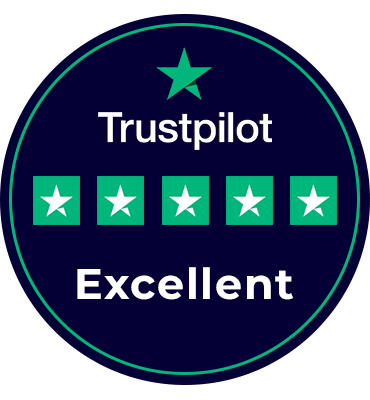13 Lead Generation Strategies for Manufacturing Companies
Manish Kumawat
Last Updated on: 07 October 2025
The most difficult challenge faced by manufacturing businesses today is the lack of genuine leads and the low rate of lead conversion. Manufacturers are spending millions of dollars experimenting with various ways to get leads. They are trying various lead generation methods one after another. The reality is that most of those efforts go in vain.
- Ever felt like you're shouting into the void?
- Do you feel frustrated due to result-less lead generation expenses?
- Ever felt like your manufacturing company was a ship wandering at sea, struggling to find new customers?
It's a common struggle. But here we're about to drop some serious lead-generation knowledge on you. We're here to guide you to the destination for quality lead generation. Just like a skilled sailor charts a course using a compass, this guide will equip you with the tools and strategies to navigate toward successful lead generation.
Why Lead Generation is a Must for Manufacturing Companies
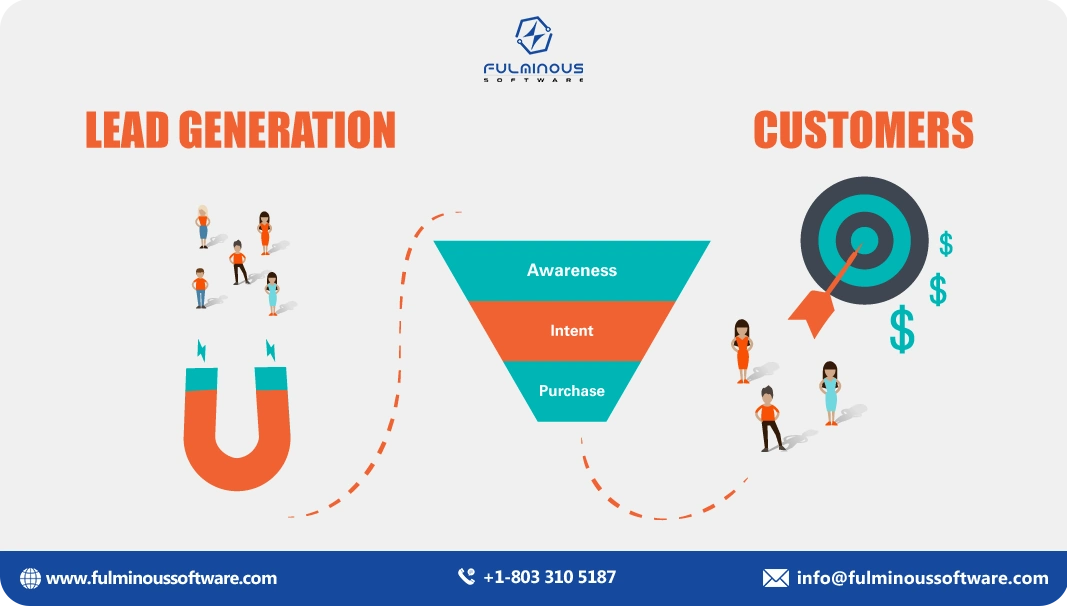
Consider your manufacturing company as a garden. Without a steady stream of customers, it’s like a garden without anyone to enjoy the beauty and appreciate the work you've put in. You might have the most fertile soil and the most beautiful flowers, but without anyone to appreciate them, your garden will be under a veil. That’s where lead generation comes in.
No matter how efficiently you manufacture products, how fast you deliver them, or the quality of products you make, if there is nobody to buy them, your efforts may go in vain. If you fail to get genuine leads, all your efforts can feel wasted. The more leads you have, the more chances you have of finding people who are eager to enjoy, appreciate, and buy your products.
Lead generation isn’t just about finding new customers; it’s also about building relationships. When you nurture leads and provide them with valuable information, you’re creating a loyal customer base. So, if you want your manufacturing company to flourish, lead generation is a must.
The Importance of Lead Generation Strategies for Manufacturers
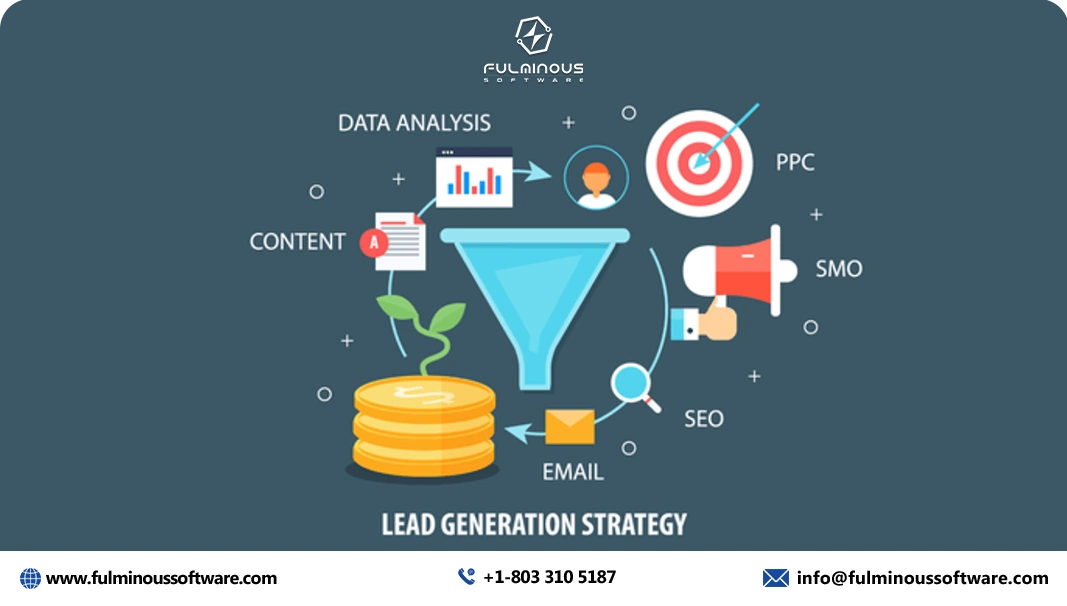
This is where most manufacturing companies fail to generate genuine leads. Yes! Lead generation efforts without proper strategies are just like a ship sailing through a vast ocean without a clear roadmap or navigation tools. If you are facing the same, you're likely to get lost or end up in treacherous waters. That's where strategies come in.
Strategies are like your compass, guiding you towards your destination. Well, a well-defined strategy gives a crystal-clear direction and moves on the right track toward success. Creating smart plans is important to find your ideal customers, learn what they need, and design marketing that speaks to them. It's like knowing the best spot to catch the most fish.
These plans also help you use your resources wisely and track how well you're doing. It’s like sticking to a budget and keeping an eye on your spending to stay on track. In short, strategies are the backbone of successful lead generation for manufacturing companies. They give you a clear path, help you make smart choices, and ensure your efforts are focused and effective.
Old vs. New Lead Generation Strategies for Manufacturing Companies
The manufacturing lead generation strategies are changing day by day. When you look back 10-15 years ago, people used several strategies that are outdated today. Have a look at that drastic change:
Traditional Lead Generation Strategies
- Cold Calling: Reaching out to potential customers directly by phone, often without prior qualification.
- Trade Shows: Attending industry events to network with potential clients and showcase products.
- Direct Mail: Mailing target audiences hard copy marketing materials.
- Print Advertising: Placing ads in industry-specific publications.
Modern Lead Generation Strategies
- Content Marketing: Creating and sharing valuable content (blogs, whitepapers, videos) to attract and engage potential customers.
- Social Media Marketing: Using platforms like LinkedIn, Twitter, and Facebook to connect with target audiences and build brand awareness.
- Search Engine Optimization (SEO): Improving your website's search engine ranking for relevant keywords.
- Pay-Per-Click (PPC) Advertising: Running targeted ads on platforms like Google Ads and LinkedIn to reach potential customers.
- Email Marketing: Building and nurturing email lists to send targeted messages and drive conversions.
- Webinars and Online Events: Hosting virtual events to educate and engage potential customers.
- Lead Generation Tools: Using software to capture and nurture leads, such as CRM systems and marketing automation platforms.
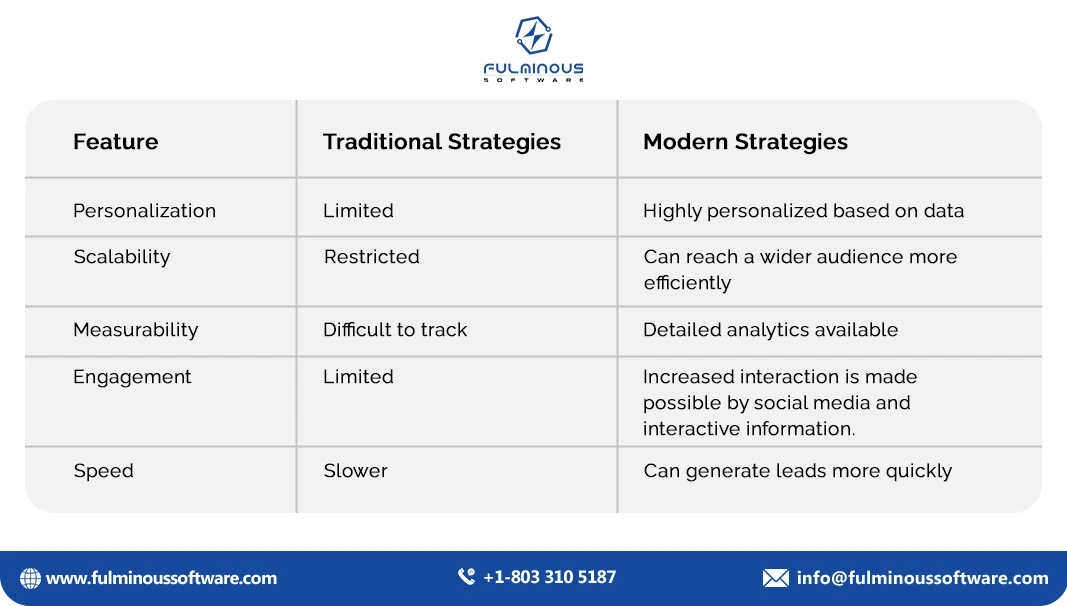
Don't Completely Ignore Traditional Lead Generation Strategies
While modern digital marketing strategies have become increasingly effective, traditional lead-generation methods should not be completely ignored. They can still offer significant value.
Here are some reasons why traditional strategies remain relevant:
- Direct Relationships: Traditional methods like cold calling and trade shows allow for direct, personal interactions that can foster stronger relationships with potential customers.
- Trust Building: Face-to-face meetings can help build trust and credibility, which is essential in the manufacturing industry.
- Targeted Reach: Traditional methods can be highly targeted, especially when combined with data-driven insights. For example, direct mail campaigns can be tailored to specific demographics and interests.
- Niche Markets: Traditional strategies may be more effective in reaching niche markets or regions where digital penetration is low.
- Complementarity: Traditional and modern methods can complement each other. For example, a well-crafted direct mail campaign can drive traffic to your website, where you can capture leads through online forms.
While modern digital marketing strategies offer numerous advantages, traditional lead generation methods can still play a valuable role in a comprehensive marketing strategy for manufacturing companies.
13 Lead Generation Strategies for Manufacturing Companies
Let’s have a deep look at 13 Lead Generation Strategies for Manufacturing Companies one by one.
1. Adapt Trending Marketing and Lead-Generation Techniques
Manufacturing companies need to stop being stuck in the past and start accepting the importance of the future of marketing. At the same time, you need to adopt the right method for your manufacturing business. Things like digitalization, automation, and using AI to understand customers are huge opportunities to connect with potential buyers.
Personalization is the new trend. It’s like tailoring a suit just for someone. You can send messages that are totally relevant to specific industries or businesses. And forget about the boring old text. Interactive stuff like virtual demos and augmented reality (AR) let people try out products before they buy.
Video is also a big deal. Think YouTube or LinkedIn. You can use videos to explain complicated stuff in a way that's easy to understand. This makes your brand more approachable and informative.
So, if you want to connect with your audience and find new customers in today's digital world, you need to keep your finger on the pulse of these trends.
2. Keep Effective Traditional Techniques
Modern marketing has plenty of benefits, but don’t forget about the tried and traditional methods. Cold calling, trade shows, and meeting people in person can still be really effective for manufacturing companies. When you meet someone face-to-face, you can build trust and have real conversations about their specific problems.
Direct mail can also be a winner. It’s like sending a personalized letter to someone’s house. If you do it right, it can really grab people’s attention, especially if you target specific industries. The secret is to mix ancient and modern techniques in the appropriate amounts or find the correct balance between them. This way, you can reach people who might not be online all the time.
3. Connecting with the Appropriate Audience
The majority of lead generation efforts in the manufacturing sector is just like offering protein-rich grass to a tiger when it is hungry. Targeting the right people is like fishing in the right pond. You want to know who your dream customers are and where they're located.
To do this, you must develop thorough buyer personas—basically, profiles of your ideal client. You need to understand their problems, what they're looking for, and how they make decisions. Once you know who you're targeting, you can tailor your marketing to them. This could be through targeted ads, personalized emails, or content that's relevant to their industry.
And don't forget to use data from your CRM system and customer feedback. Making sure you're allocating your marketing budget effectively and improving your strategy are both aided by this.
4. Consider Marketing Data Seriously
Data is like a treasure map that shows you where the gold is. Manufacturing companies need to pay attention to the data from their marketing campaigns. You can find out what is and is not working with these things. You can see things like how many people are buying, how good the leads are, and whether your marketing is actually making you money.
By analyzing this data, you can figure out what needs to be improved and spend your money wisely. You can target the right people, optimize your ads, and create content that people actually want to see. You'll know how long they're staying, what pages they're visiting, and what they're downloading.
It's like having superpowers when you can make judgments based on data. It helps you generate more leads and improve your marketing overall. So, don't ignore the data. It's your secret weapon to success.
5. Make Attractive Offers
If you want to attract more leads, you need to offer them something they can't resist. This could be free consultations, product samples, or informative whitepapers that solve their problems.
Make sure your target audience finds these offers valuable. For example, if you're offering a free eBook on how to reduce production costs with automation, it's more likely to appeal to manufacturers who are looking to save money.
By creating offers that show off your company's knowledge and provide practical solutions, you're demonstrating your value to potential customers. This makes them more likely to give you their contact information and take the next step toward doing business with you.
6. Have a Manufacturing Website with Lead-Generation Features
Having a website with lead generation features is important for manufacturers. For information about your business, it's the first place customers will look. So, make sure it's a good one! You need to include things like contact forms, downloadable resources, and clear calls-to-action (CTAs) that encourage people to take the next step.
Live chat is also a game-changer. It's similar to having a salesman on call whenever needed to assist customers and respond to inquiries. You can also offer fresh content, like eBooks or case studies, in exchange for their email address. This is a great way to collect valuable information about potential leads.
Finally, make sure your website is integrated with a CRM system. By creating a manufacturing website that's easy to use, informative, and engaging, you'll be able to turn visitors into customers more effectively.
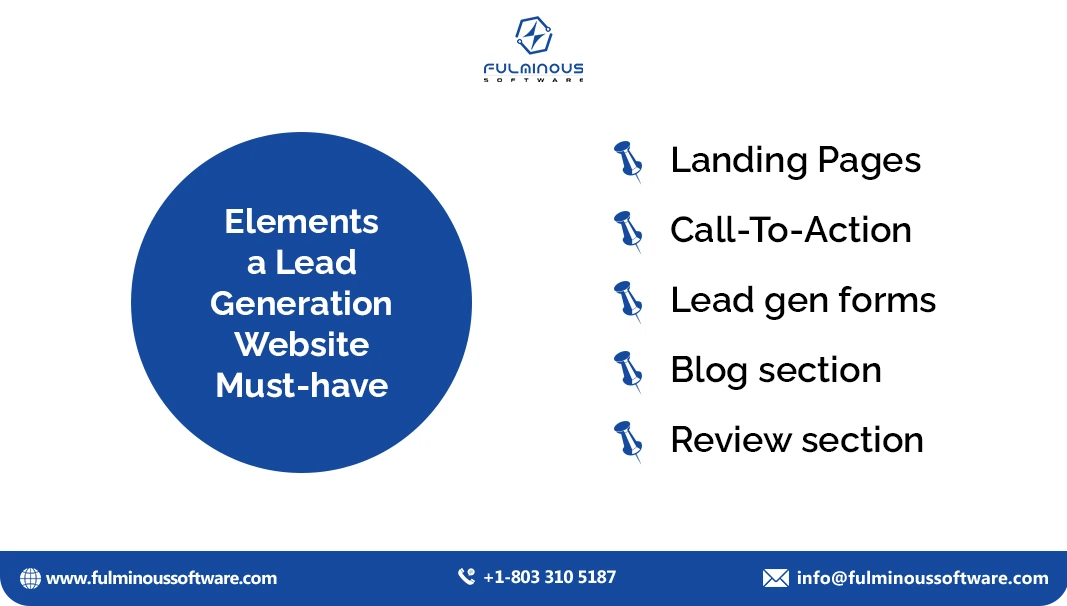
7. Create a Strategic Infographic
Infographics can make complicated stuff easy to understand. In the world of manufacturing, where products and processes can be super technical, infographics are a lifesaver. They break down complex information into bite-sized chunks, making it easier for people to grasp.
Think of infographics as shareable memes for grown-ups. They're perfect for content marketing and social media. When creating an infographic, focus on highlighting important data, solving industry problems, or showing people how your manufacturing process works step-by-step.
Infographics are attention-grabbers that can leave a lasting impression. They can position your company as a leader in the industry, showing that you're innovative and approachable. Thus, think about using an infographic the next time you need to communicate a difficult concept.
8. Run Well-Planned PPC Campaigns
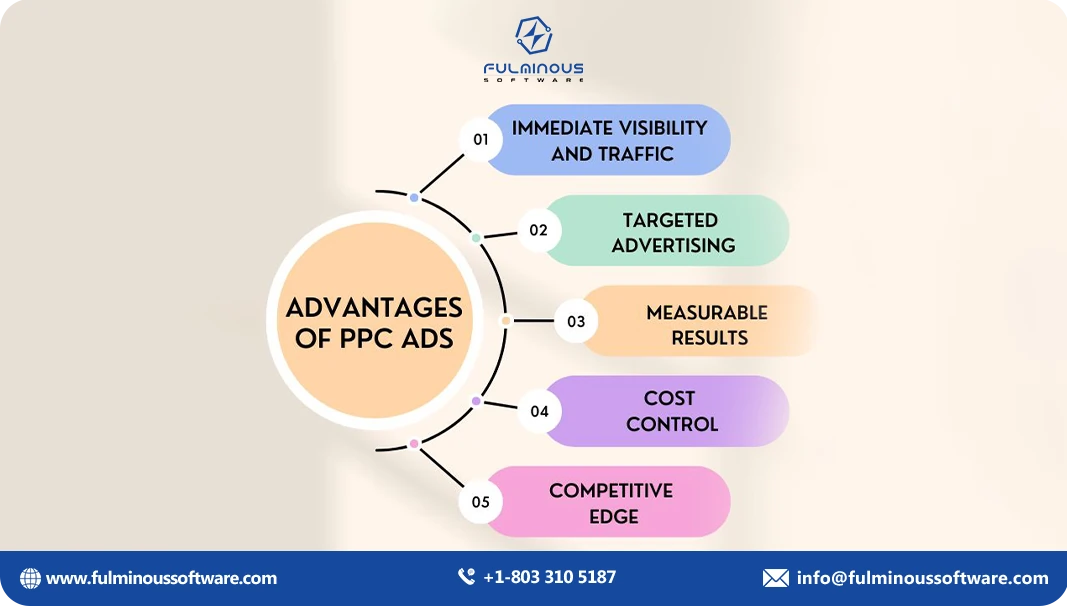
PPC campaigns are the best choice for your manufacturing lead generation. They let you reach people who are actively searching for what you offer, like industrial automation solutions or custom manufacturing services. It's like putting your ad in front of people who are already interested.
When setting up a PPC campaign, make sure you're using the right keywords. You want to attract people who are looking for exactly what you sell. And don't forget about your landing pages. They should match your ad and have clear calls to action that encourage people to take the next step.
Observe your campaign and make any necessary adjustments. This will help you get the most bang for your buck and generate a steady stream of leads.
9. Make Connections at Trade Exhibitions
Trade shows are like big parties for your industry where everyone is interested in the same things. They're great for meeting new customers, suppliers, and partners. You can show your products, share your technology, and talk with decision-makers.
Make sure to have marketing materials and team members who can answer questions. Don't just wait for customers to come to your booth. Go out, talk to visitors, give live demos, join panel talks, and offer special deals during the show.
Collect contact info from everyone you meet to follow up later. Trade shows are also a great way to build relationships with important people. Being active and friendly helps your company stand out as a leader.
10. Optimize for Local SEO
If your manufacturing company serves a specific area, local SEO is important. It's like putting your business on a map for people nearby who need your services.
First, update your Google My Business profile. This is like your online business card. Also, add local keywords to your website and metadata.
Next, join local online directories and trade groups. This is like becoming part of the local business community. Being active in these groups helps more people find your company and builds connections with other local businesses.
It is easier for locals to find you when you use local SEO. It’s like putting a big sign on your door that says, “We’re here and open for business!”
11. Focus on Email Marketing
Email marketing is like having a personal assistant that helps you stay in touch with potential customers. You can use it to share interesting stuff about your industry, tell people about new products, or offer exclusive deals.
Personalized emails are like sending a handwritten letter. They're more likely to get people's attention because they feel like they're being talked to directly. Automated email sequences are like having a robot assistant who follows up with people for you.
Make sure your emails have clear calls to action, like scheduling a consultation or downloading a whitepaper. This inspires customers to take the next step. And don't forget to track your email performance. Email marketing is a powerful tool that can help you generate more leads and build relationships with your customers.
12. Don't Miss Content Marketing
Content marketing is like building a bridge between you and your customers. It helps them trust you and shows them that you know what you're talking about. You can create blogs, whitepapers, case studies, and videos that showcase your expertise and solve your customers' problems.
By publishing high-quality content regularly, you'll improve your search engine rankings. This means more customers will visit your manufacturing website. Focus on creating content that's informative and helpful. For example, a blog on "How IoT Can Improve Manufacturing Efficiency" could attract manufacturers who are interested in new technologies.
With a solid content strategy, you can engage your audience, show that you're a leader in the industry, and generate leads over time. It's like building a loyal following of fans who can't wait to hear what you have to say.
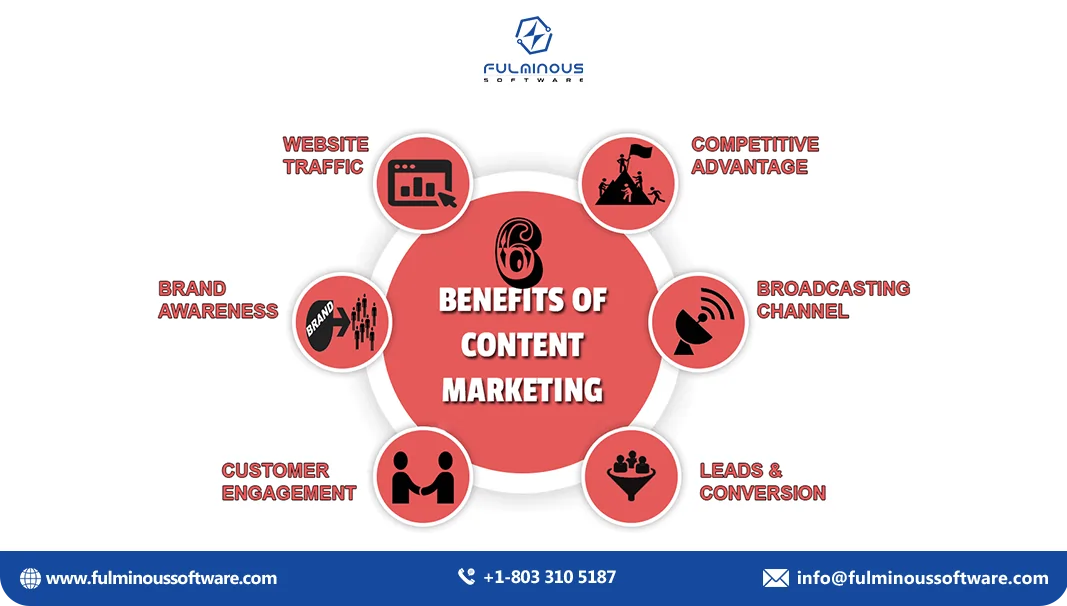
13. Participate on Social Media
You might not think social media is for manufacturing companies, but it can be a really powerful tool for reaching other businesses. Platforms like LinkedIn, Twitter, and even YouTube can help you build your brand and connect with potential customers.
Sharing updates, posting interesting content, and joining industry discussions on social media can help you become known and respected in your field. LinkedIn is especially great for networking with professionals and decision-makers in the manufacturing industry.
By regularly posting about your services, achievements, and insights on social media, you'll keep your business visible and attract qualified leads. It also gives you a chance to have direct conversations with potential customers, which can lead to sales.
So, don't be afraid to jump on social media. It's a great way to connect with your audience and grow your business.
Common Lead Generation Mistakes in Manufacturing
Here are some common mistakes that manufacturing companies often make:
- 1. Not Knowing Your Target Audience: It's like trying to sell fishing gear to a vegetarian. You will not be successful if you do not know who you are trying to reach.
- 2. Relying Solely on Traditional Methods: While traditional methods like cold calling and trade shows can be effective, they’re not enough in today's digital age.
- 3. Ignoring the Power of Content Marketing: Creating valuable content like blog posts, videos, and case studies can attract and engage potential customers.
- 4. Not Tracking and Analyzing Results: It's like sailing without a compass. If you don't track your progress, you won't know if your strategies are working.
- 5. Neglecting Social Media: Social media platforms like LinkedIn and Facebook can be powerful tools for reaching your target audience.
- 6. Failing to Follow Up: Just like a salesperson doesn't close a deal after the first meeting, you need to follow up with potential customers to nurture leads.
By avoiding these common mistakes, your manufacturing company can get plenty of big-ticket leads.
Work with an Expert Team for Manufacturing Lead Generation
Lead generation experts are like skilled fishermen. They know the right time, bait, and place to catch the most fish. These experts understand the manufacturing industry very well.
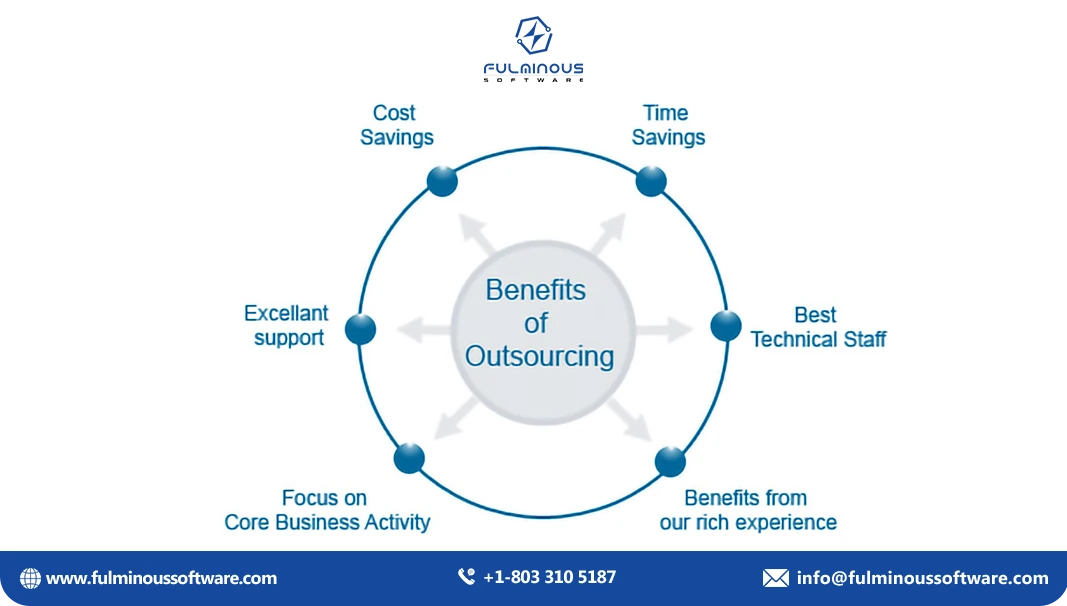
Working with them allows you to make use of their expertise to locate and draw clients more quickly. They know the latest market trends and what your audience likes. They also help you with lead-nurturing strategies.
Their advice helps you improve your lead generation, make your marketing better, and succeed in your manufacturing business.
Conclusion
So, there you have it, a collection of helpful tips to find new customers for your manufacturing company. By using both old and new methods, focusing on the right people, and using data to guide your decisions, you can attract high-quality leads.
Just like a skilled sailor uses a compass to find their way, this guide has given you the tools and strategies to navigate your manufacturing company toward success. Use the latest online tools like social media, search engine optimization (SEO), and email marketing, but don’t forget about meeting people in person at trade shows or sending direct mail.
By using data, targeting the right people, and offering attractive discounts, you can stand out from your competitors. Always keep your website updated, provide valuable information, and personalize your approach. With the right combination of strategies, your business can attract more potential customers and grow.
FAQs
- Q1: Why is lead generation so important to manufacturers?
- A: Lead generation ensures your manufacturing business attracts customers, increasing sales and fostering long-term growth.
- Q2: What’s the difference between traditional and modern lead generation strategies?
- A: Traditional strategies include trade shows and direct mail, while modern ones use SEO, PPC, and social media marketing.
- Q3: Why is it important to target the right audience?
- A: Targeting the right audience ensures your marketing efforts reach potential customers, maximizing your return on investment.
- Q4: How can data improve lead generation for manufacturing companies?
- A: Data reveals what works in marketing, optimizing strategies for better lead generation and improved campaign effectiveness.
- Q5: What part does lead generation play for a manufacturing website?
- A: A lead-optimized website turns visitors into customers through contact forms, downloadable content, and live chat features.
- Q6: How do infographics help in lead generation?
- A: Infographics simplify complex processes, making your offerings more understandable, and engaging potential leads through visual content.
- Q7: How do PPC campaigns contribute to lead generation for manufacturers?
- A: PPC campaigns target customers searching for manufacturing services, driving traffic to your site and generating high-quality leads.
- Q8: Why are customer reviews important for manufacturing companies?
- A: Positive experiences lead to a business's reputation and trust, which in turn encourages new customers to interact with it.
- Q9: How does local SEO benefit manufacturing businesses?
- A: Local SEO makes your manufacturing company more visible in local searches, attracting nearby customers seeking your services.
- Q10: What are the benefits of offering attractive incentives to leads?
- A: Offering valuable incentives like free consultations increases engagement, converting potential leads into loyal customers.
HIRE A TOP SOFTWARE DEVELOPMENT COMPANY

 Verified
Expert in Software & Web App Engineering
Verified
Expert in Software & Web App Engineering
I am Manish Kumawat, co-founder of Fulminous Software, a top leading customized software design and development company with a global presence in the USA, Australia, UK, and Europe. Over the last 10+ years, I am designing and developing web applications, e-commerce online stores, and software solutions custom tailored according to business industries needs. Being an experienced entrepreneur and research professional my main vision is to enlighten business owners, and worldwide audiences to provide in-depth IT sector knowledge with latest IT trends to grow businesses online.
Partner with Top-Notch Web Application Development Company!
Discuss your Custom Application Requirements on info@fulminoussoftware.com or call us on +1-903 488 7170.
15 Days Risk-Free TrialRecommended Articles


